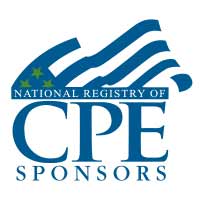We regret to inform you that we currently don't have any sessions scheduled for this course.
Please let us know your preferred date and venue, and we'll contact you soon.
INTRODUCTION
This Food Safety Management training course will provide deeper insights on how to implement an effective and robust Food Safety Policy in any organization in the food production, supply and consumption chain. This training course will enable an organization to minimize the risk of exposing itself to legal and financial risks as a result of failing to deliver safe and healthy food to its customers and/or end-consumers.
Accomplishing the above requires adequate personnel training and good understanding of the core principles in Food Safety. This Food Safety Management training course provides an ideal opportunity for participants to broaden their understanding of the basic principles of a Food Safety Management System (FSMS), as these are defined in ISO 22000:2018.
This GLOMACS Food Safety Management training course will feature:
- Review of international guidelines and regulations regarding food safety and the need for an organization to demonstrate compliance with applicable statutory and regulatory food safety requirements
- Evaluation of customer needs and how these relate to food safety
- Examination of Human resources allocation and related infrastructure requirements
- Ways on how to effectively communicate food safety issues to the different stakeholders in the food chain
- Detailed reference to the documentation needed to ensure that the organization conforms to the ISO 22000:2018 Certification requirements
Objectives
By the end of this training course, participants will be able to:
- Set up the HACCP team that has the knowledge and experience to develop and implement an effective HACCP system in their organization
- Perform the hazard analysis in order to determine the preventive measures necessary to reduce the risk within acceptable levels
- Perform the categorization into Operational Prerequisite Programs (OPRPs) and Critical Control Points (CCPs)
- Design and implement monitoring systems aiming at controlling and improving the food safety management system
- Apply evaluation and improvement of logistics in accordance with the requirements of legislation and international food safety standards
Training Methodology
This training course will utilize a variety of proven adult learning techniques to ensure maximum understanding, comprehension and retention of the information presented. The training course will be presented on a highly interactive basis, prompting delegates to engage in discussions involving their personal experience.
WHO SHOULD ATTEND?
This GLOMACS Food Safety Management training course is suitable for all organizations (private and public) of all sizes that are engaged in the production, processing, packaging, storage, transport and sale/distribution of food products. It will benefit particularly:
- Quality Control personnel in food premises and food processing facilities
- Hygiene inspectors acting on behalf of official Public Health Authorities, involved in the inspection of food premises and in the implementation and monitoring of food safety legislation
- Food Safety Consultants
- Food technologists and scientists who want to enrich their scientific knowledge
- Potential food professionals and scientists who want to gain knowledge that will bring new job opportunities
Day 1
Introduction to and basic definitions of Food Safety Management Systems (FSMS)
- Food Safety Management System principles in the light of the new ISO22 000:2018
- ISO22000:2005 ISO22000:2018: The Key differences
- The history of Food Safety management: Cross references between the CODEX HACCP and ISO 22000:2018
- International Guidelines and Regulations regarding food safety
- Glossary used in Food Safety
- Understanding organizational needs and expectations relating to the implementation of an FSMS
Day 2
Food Safety Policy: The Risk-Based Thinking Approach
- Leadership and top management commitment
- Establishing and communicating the Food Safety Policy
- Assigning the organizational roles and responsibilities
- Planning on the basis of the Risk-based thinking
- Setting the Food Safety Management System objectives
- Managing the changes in the FSMS
Day 3
Support and Documentation Requirements for ISO22000
- Resource requirements: People, infrastructure and work environment
- Personnel competence and awareness
- Maintaining an effective internal and external communication
- Documentation requirements of ISO 22000 – Creating and Updating documents
- Detailed reference to documents with specific examples on the design and use of forms
- Control of documents as evidence of conformity and traceability
Day 4
Operational Planning and Control: The Realization of Safe Products
- Establishing the PRPs (prerequisite programmes)
- The Traceability system: From incoming material to the end product
- Emergency preparedness and response: Understanding the organization’s responsibility in the food chain
- Hazard control and analysis: Control measures and Hazard control plan
- Control of monitoring and measuring activities/Verification planning
- Control of product and process nonconformities: Corrective actions, product release/withdrawal/recall
Day 5
Performance Evaluation and Improvement of the Food Safety Management System
- The critical steps in performance evaluation: Monitoring, Measurement, Analysis and Evaluation
- Internal audits in the context of ISO 22000 – team exercise on an internal audit
- Management review: Reviewing the FSMS to ensure continuing fitness-for-purpose
- Dealing with nonconformities and the critical role of corrective actions
- The need for continual improvement and updating of the Food Safety Management System
- Q&A and wrap-up session
- On successful completion of this training course, GLOMACS Certificate will be awarded to the delegates
- Continuing Professional Education credits (CPE) : In accordance with the standards of the National Registry of CPE Sponsor, one CPE credit is granted per 50 minutes of attendance
Endorsed Education Provider
GLOMACS is registered with the National Association of State Boards of Accountancy (NASBA) as a sponsor of continuing professional education on the National Registry of CPE Sponsors. State boards of accountancy have final authority on the acceptance of individual courses for CPE credit. Complaints regarding registered sponsors may be submitted to the National Registry of CPE Sponsors through its website: www.NASBARegistry.org
GLOMACS Training & Consultancy
Typically replies within an hour



